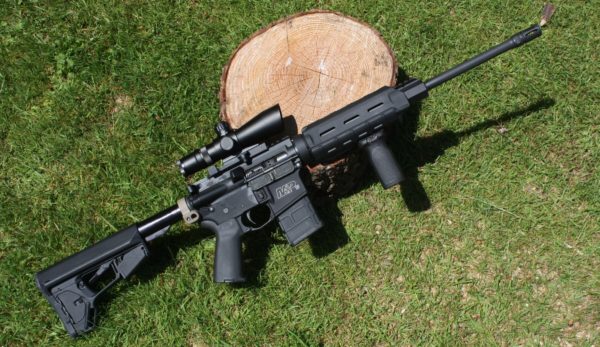
On the eve of the 37th annual Gun Rights Policy Conference in Dallas, Texas, the Second Amendment Foundation filed a federal lawsuit challenging the ban on so-called “assault weapons” in Connecticut.
This legal action comes just as SAF was preparing for a day-long program involving attorneys from across the country, an event prior to Saturday’s opening of the actual GRPC. It is the first time in three years the conference is a live event, and judging from the atmosphere at the Westin Dallas-Fort Worth hotel, activists are eager for the conference to commence.
Activists attending the conference are learning about the Connecticut lawsuit, which is joined by the Connecticut Citizens Defense League and three private citizens, Eddie Grant, Jr., Jennifer Hamilton, and Michael Stiefel. Named as defendants are Connecticut Gov. Ned Lamont, plus James Rovella, commissioner of the state’s Department of Emergency Services and Public Protection; Chief State’s Attorney Patrick Griffin and several other officials. Plaintiffs are represented by attorneys Doug Dubitsky of North Windham, Conn., Craig C. Fishbein of Wallingford, Conn., and Cameron L. Atkinson of New Haven.
The lawsuit was filed in U.S. District Court for the District of Connecticut.
Connecticut’s ban on so-called “assault weapons” dates back to 1993. The state criminalizes the possession, sale or transfer of such firearms—about 160 guns named in four subsections—even though many of these guns are in common use across the country.
“The ban was previously upheld, but that was before the Supreme Court handed down its Bruen ruling earlier this year,” said SAF founder and Executive Vice President Alan M. Gottlieb said in a statement. “That landmark decision eliminated the ‘two-part test,’ which included an interest-balancing provision that didn’t pass constitutional muster.”
By rejecting the “two-step approach to considering Second Amendment cases, the high court put lower courts essentially on notice that henceforth, the Second Amendment must be treated equally to other tenets of the Bill of Rights.
“We know of no other constitutional right,” wrote Justice Clarence Thomas in Bruen, “that an individual may exercise only after demonstrating to government officers some special need. That is not how the First Amendment works when it comes to unpopular speech or the free exercise of religion. It is not how the Sixth Amendment works when it comes to a defendant’s right to confront the witnesses against him. And it is not how the Second Amendment works when it comes to public carry for self-defense.”
Thus, the lower courts can no longer treat Second Amendment rights differently than other rights.
According to the lawsuit, the current ban deprives “responsible citizens of their Second Amendment rights under the guise of providing a panacea for social problems that Connecticut remains unable to solve.”
Gottlieb said there is no historical foundation for such a ban, and the complaint actually details the historical development of firearms including repeating rifles developed and manufactured in Connecticut and elsewhere. The lawsuit also mentions incidents in which modern semiautomatic rifles were used by private citizens to stop violent crimes.